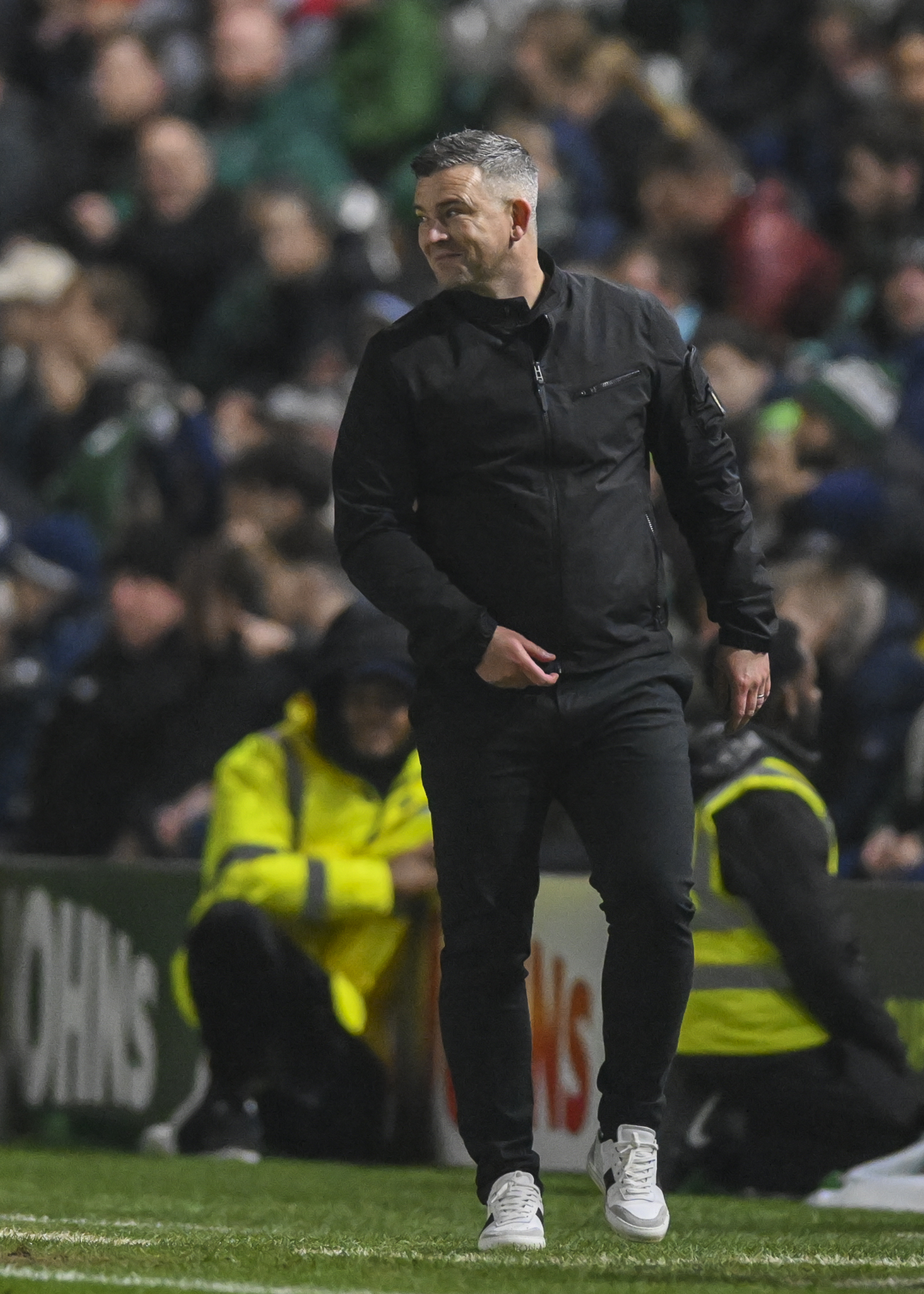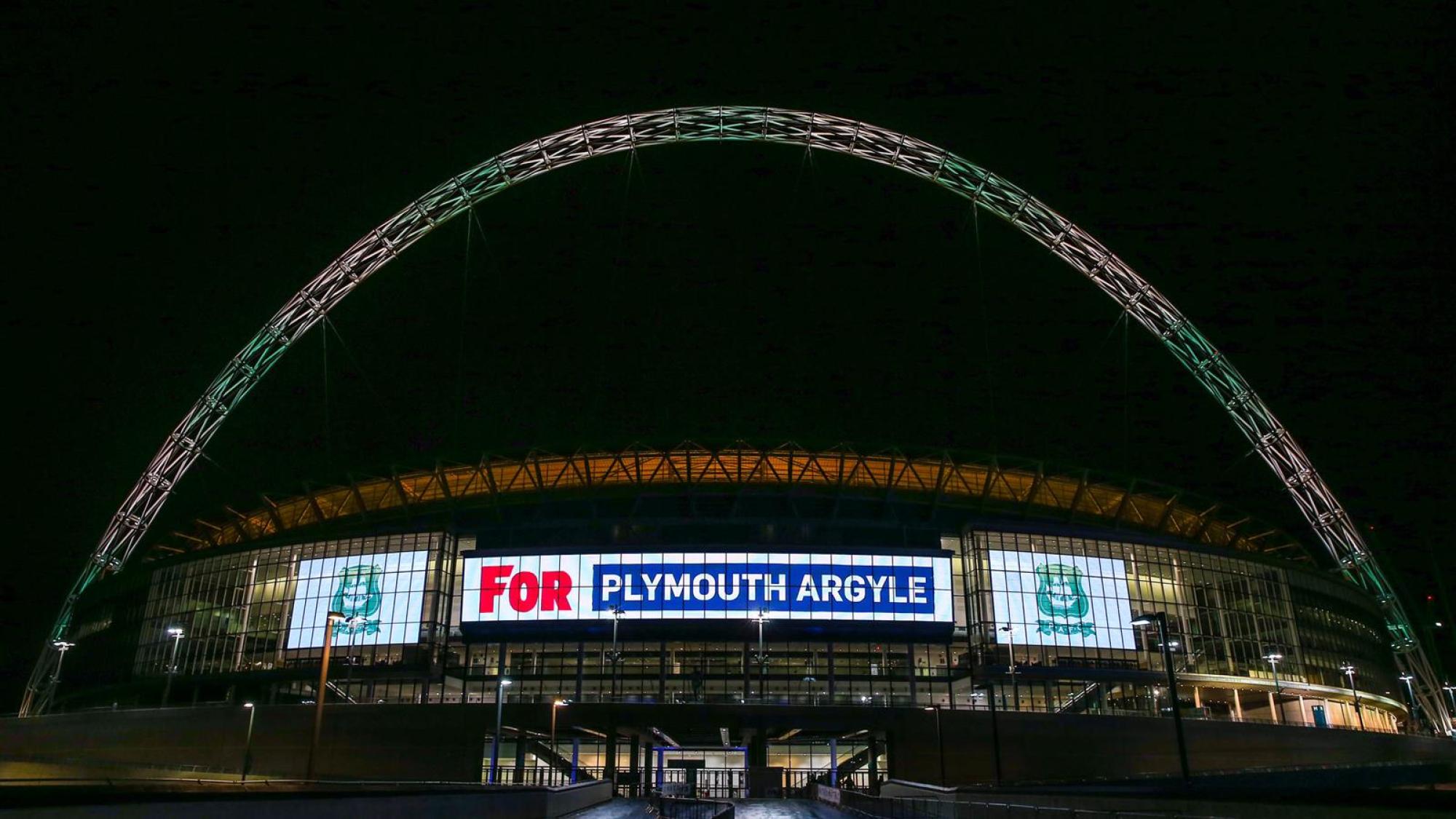Wembley Way
After Argyle's semi-final win booked the Pilgrims' place in the Papa Johns Trophy final, and secured only the third trip to Wembley Stadium in the club's history, Argyle Media Officer Rob McNichol discusses what Wembley means to football, and what Tuesday night meant to Argyle...
---
When I was just a little boy, I went to a Papa Johns Trophy final.
Well, it was called the Sherpa Van Trophy then, but you get the drift. In 1989, my father was the captain of fourth-tier Torquay United, who reached the final against Bolton Wanderers. To my eternal despair, I could have been the mascot joining him to lead the Gulls out, but five-year-old me had been to Wembley before, and been terrified, so I declined, instead watching from the stands. Bolton won 4-1, incidentally.
A lot has changed in the subsequent 34 years. Football has drastically altered; I have matured (arguably), the competition has had eight different sponsors; the standing of the event has fluctuated in fans’ eyes.
But I’ll tell you what has not changed: the lure of Wembley.
The stadium has changed physically, of course. I went to the ‘old’ Wembley six times, including the 1996 play-off final between Argyle and Darlington. The place had romantic charm, it had the symbolism of those wonderful towers and Wembley Way, and it had unrivalled history. All those cup finals, the 1966 World Cup heroics – crikey, even Live Aid. You could argue that the best three performers in Wembley history were Geoff Hurst, Ian Rush and Freddie Mercury.
Frankly, though, by my final visit, in 2001 to watch England play, it was falling apart. It was not a nice place to watch football, especially when Kevin Keegan had run out of ideas and I got drenched watching Dietmar Hamann give Germany a 1-0 win.
When I next headed to Wembley, it was a different story. It was new, it had an arch, and it had another Green Army invasion. The game did not go how we wanted, of course, but as a member of the Argyle media team, once the hurt of not getting promoted had evaporated, the Wembley experience was a special one.
As soon as Callum Burton saved his third penalty in a row on Tuesday night, and I had done the work I needed to do in the press box, I hoofed it down to pitchside. Handshakes and hugs were the order of the day, and among the congratulatory atmosphere, the W word could be heard permeating the Home Park air.

It was not a case of ‘we’re in the final’ or ‘we could win this’ – it was all about Wembley. Just that word means so much to anyone who knows anything about English football. It does not need explaining. It’s just Wembley.
One of my other great passions is horse racing, and in that world another word has a similar resonance. Coincidentally enough, given our semi-final opponents, that word is ‘Cheltenham’.
There is something very special about any race at Cheltenham racecourse, particularly during March’s Cheltenham Festival. And it is the same across most sports, I think. Winning The Open Championship is more celebrated when it comes at St Andrews; scoring a century or taking five wickets at Lord’s is more special than at any other cricket ground. Insert Twickenham for rugby, Ally Pally with the darts or Wimbledon for tennis.
In America, Madison Square Garden in New York has that feel. ‘The Garden is the Garden is the Garden’, they say.
Well, Wembley is Wembley. And soon, we get the chance to turn Wembley green again.
---
I listened at close quarters to Steven Schumacher’s interview with Sky Sports after the Cheltenham game. He was speaking to the studio via a headset, so I could not hear the questions, only his answers.
It meant that during the pauses between his words, where I could not ascertain what was being asked of him, I could study his reactions, and his expression. He could not hide his pleasure at the situation. In fact, he made no attempt to hide it – why should he?
More than that, though, you could sense the pride in his answers. Sometimes, sensing was unnecessary; Schuey simply told us of how proud he felt.

Managers these days are often media trained to the syllable, taught how to say the right things, at the right times, to the right people. But anyone with half a brain can spot a fraud, can spot someone towing a party line, and not feeling what he is saying.
That’s not our gaffer. I will admit to the fact that we usually have a little chat to him before he conducts press affairs to flag things up, but we will never tell him what to say.
I stood alongside him this week, with no little pride on my own part, as he talked about being the third manager to lead Argyle out at Wembley and namechecking Ronnie Mauge as a Wembley hero. We haven’t told him that. He isn’t parroting lines he has been fed. He knows, because he cares.
We all care in different ways. Some of you reading this are not swept up in the Papa Johns euphoria, and that is absolutely your prerogative. However, to end where I began, looking at things through youthful eyes, what an experience Sunday, 2 April will be for some of our younger Pilgrims.
Before Tuesday night was out, I was already hearing verbal anecdotes or reading social media posts of people saying how special it was to share the experience with their children, or similar. One post said that it was their granddaughter’s second-ever game, and now she wants a season ticket. Another recounted that their lad said it was his favourite football match ever.
To experience a cup final – something we have never, ever been in – will be special, and doubly so if we can win it.
In football, I have learned that you need to savour every moment so, whatever happens on the first weekend in April, be sure to remember the night Ryan Hardie scored a delight of a goal at the Babcock Devonport End, the night Callum Burton showed considerable bottle to save three penalties, the night we achieved Wembley for only the third time in 138 years.
It was Pancake Day, then it was Pizza Day, then it was Doris Day.
Que sera, sera…



